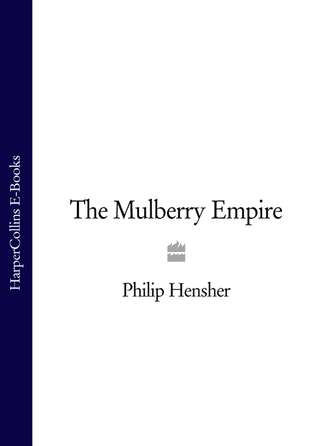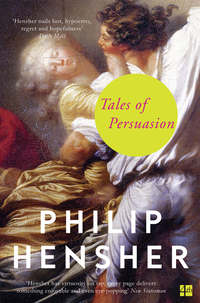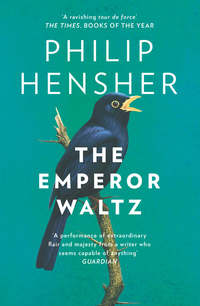
Полная версия
The Mulberry Empire
‘Where are we going to?’ Burnes shouted to the mounted guards. He was glad to hear his voice sounded authoritative.
‘The Bala Hissar,’ one said, not looking down at him.
‘Is it far?’ Burnes called.
‘No,’ another horseman said. ‘Not far.’
‘The Emperor is waiting,’ the first horseman said. ‘It is time to go. Are you ready?’
‘Yes,’ Burnes said. ‘Yes, we are ready.’
They set off, their guard not dismounting but hemming them in between the horses’ high flanks. The horses walked with such stately gravity that at one moment, one of them could not bear the tenseness of the slow walk and wheeled abruptly off, circling like a hawk in the street before the rider brought the beast back. There could have been something brutal, a blunt assertion of power, in their making the party walk between the horses, like tethered slaves. They may have felt this – Gerard certainly felt this, to judge by his clenched-buttock stride, now the result of his august pride as much as his fluid bowels – but Burnes couldn’t feel any outrage in himself at this treatment. Rather, he felt, in his glittering exotic clothes, dress uniform draped splendidly with the heavy red court robes, like a pilgrim. An unworthy pilgrim, walking humbly up the hill to the great sawn-off blunt rock, the palace, the Bala Hissar, in the middle of which vast plain mass sat the Amir. Up there was the Emperor, politely patient, waiting; you could feel his calm wait here, walking the street between their mounted companions. And the mounted companions, too, seemed quiet, subdued by the Emperor’s patient quiet. What splendour was up there, Burnes could not tell; but he felt that there would be none. This city, plain-dressed, the high clean air given its florid perfume by the fruit trees, wasn’t ruled by some fabulous potentate; he could feel it. No cushion-fleshed tyrant in a pile of rubies sat up there, watching them approach; just a mind.
As they walked through the narrow mud streets, they were given a thorough inspection. The children came to the windows, and stood, staring; shadows, in the upstairs shuttered windows, showed them that the women of the city, too, were curious. The shops in the bazaar were opening, and, behind the piles of fruit, of bags of spice, the merchants and customers, sitting in the early sun, followed the procession with humorous open eyes. Over the city, the Bala Hissar, a great shapeless piece of power, and they walked the streets, not responding to the keen attention of the city.
They walked on, not speaking to each other or their guards. Occasionally, over their heads, one of the horsemen would call out to another, or to someone in the street. They called out in Pushto, and each time Gerard, walking by Burnes’s side, stiffened, knowing that they didn’t want to be understood. Burnes worked on his patience; if Gerard could be kept from speaking at least until his easily-ignited fury had died down, that would make things a great deal easier. After they had run the gauntlet of the bazaar, the houses seemed to drop away. The hill of the Bala Hissar itself was bare, clear for a siege.
This last stretch, as the road turned upwards, seemed to divide and stretch before them, and it seemed to Burnes, as the Bala Hissar receded from them, that this was the road in the paradox; that with each step, the road doubled in length, that each step grew smaller and more painful, and the great fortress would never be reached, as they laboured at its gates, endlessly. But it was mere minutes before they were there at the open gates, and their escort turned, at some unseen signal, and rode off, calling to each other, now, in Persian.
8.
A small man ran up to them and beckoned quickly with his two hands, scowling. He seemed alone, and they followed him into the big square court of the palace. It was quite empty, and they walked briskly across it into another opening, the doors swinging open. Two boys were lounging there, each with a jezail slung across his back, each turbanned massively, and they made some side-to-side swing of the head, acknowledging not them, but their little guide. He gestured and beckoned continuously, and they followed him into another hall, where a group of more soldierly youth stood, waiting, and then into another. As they walked through the rooms of the palace, they acquired some kind of attendance behind them, the boys forming a chattering guard behind them, and all the time the little man, dancing, beckoning, in front of them. They walked through one room after another, the heavy blunt-carved dark wood doors opening weightily, and in every room there was almost no furniture, almost nothing, just plain plaster walls, the narrow windows of a palace in a country which knew all about heat, and about cold. Abruptly, they all fell silent, and at a circling gesture from their guide, stopped. The guide looked them over, critically, as if for the first time, and, with a circling gesture, stirring something in the air, a half-smile, a nod at the guards at the door, conveyed somehow that here they were. The doors were brought open and their guards fell back behind them, as they walked, in an awe they tried to subdue, into the great hall of the Amir. And there he was.
The hall was bare, long and square, with a single step at the end rising to a modest platform. There was nothing in the room except a huge Turkey carpet, rich and deep as rubies. At the far end of the hall, perched on the edge of the step, sat the Amir. A group of courtiers and mullahs, ten or twelve, stood behind him; the courtiers wore swords dangling from their kummur-bund. As they entered, the group seemed to stiffen, and drew back, forming a little fan around the Amir, who did not rise. They bowed deeply from the far end of the hall, rose very slowly, and walked forward. Every five paces, they stopped and bowed again, an obeisance returned with a tiny benevolent craning of the neck by the Amir. It wasn’t a court ceremonial; just a ritual concocted to show the greatest possible deference, which, it was hoped, the Amir would take as some court ritual of Europe. Finally, at ten paces from the Amir, they dropped to their knees and bowed their heads very slowly to the floor, counted to five, as agreed, and raised them again.
The Amir was smiling. ‘Welcome, welcome,’ he said. He was a sharp-featured man, a scimitar of a nose scything through his beautiful humorous face, and his big dark eyes danced, curious or amused, from one to another. His robes were plain, and, like the earth, a dozen shades of brown, and wrapped around his body as he sat, cross-legged, on the edge of the step. By his side, the nobles looked savage, graceless, bundled like washing. He gave a small bow from the neck, not in humility but, as it were, cueing Burnes to speak.
‘Emperor,’ Burnes began. ‘Lord of the distant horizon, Emperor of the wind, King of the Afghans, Heir of Israel …’
That was not quite right. He continued.
‘Heir of Israel, we come to offer you the shade of our friendship. May the shade of our friendship always offer you rest and solace, may the waters of the love between our empires never run dry.’
‘May the song of the nightingale always bless your counsels,’ the Amir returned, ‘and may the wise horses of your empire bear you without tiring to your last home. Sit down, sit down.’
Burnes, Gerard and Mohan Lal awkwardly forced themselves into a cross-legged posture; a painful business in high-topped boots.
‘Greetings, Sikunder Burnes,’ the Amir said. ‘Your name is auspicious.’
An old and now familiar joke, from much repetition. Memories were long here, and every single Afghan, on hearing Burnes’s name, had asked him if he were Alexander the Great, come to rob the country again. It had seemed unfortunate; now, he had come to see it was just their sense of humour. ‘There is nothing, thank God, I share with the Greek Alexander, and come not to plunder your kingdom, but in all respect.’
The nobles, teetering with nervously thrilled anxiety, now gave way to a general giggling, stopped with one quick sideways jerk of the Amir’s head. Behind him, the two pairs of double doors, one on either side of the throne room, were half opened; it had clearly been a great honour that, on their entry into the Bala Hissar, the double doors were all opened. Out of the doors came now a procession of cooks, bearing great dishes of heavy beaten silver, starting with a whole steaming lamb, lying on its back with its legs pathetically upwards in a sea of steaming spinach. It was, Burnes estimated, ten o’clock in the morning, and Gerard was tensing at the sight.
‘How many kings are there in Europe?’ Dost Mohammed suddenly asked. ‘And Napoleon, is he still King in Europe?’
‘Ah—’ Burnes said, thrown off balance. But the Amir seemed hardly to mind.
‘I do not understand,’ the Amir continued. ‘It seems that the lands of the kings of Europe march with each other. Are they on good terms, or do they fight over their borders? How can they exist without destroying one another? I am most interested, Sikunder Burnes, to have the benefit of your wisdom and knowledge.’
Burnes recollected himself. He had been made sleepy by the East, and had been preparing for a long series of introductory gestures; the mutual flattery for half an hour, the commendation and reluctant acceptance of every single dish, the entertainment from the professional anecdotalist. He hadn’t anticipated anything like conversation starting up for at least two hours.
‘There are many countries in Europe, great Amir,’ he began. Dost Mohammed, gathering up his retinue, gestured them to their places on the carpet around the colossal morning feast. He drew Burnes to his right side, and seemed to be listening with great attention, the Amir’s big dark sad eyes fixed on him as he spoke. When the list had come to an end, he took a deep hissing breath through his nose, like a horse after exercise.
‘I see,’ he said. ‘It seems to me that your advancement in civilization, as you describe it, does not save you from war and dispute.’
‘It is to be feared so.’
The minor nobility and clergy, all trembling with curiosity, now responded to some kind of sign from the Amir, and fell on the food with a terrible cheerful eagerness.
‘It is said,’ a very young prince asked, ‘that in your country, the flesh of pigs is eaten. Is this true, Sikunder Burnes?’
The Amir waved away the question before Burnes could answer it. ‘Tell me about taxation in Europe,’ he said. ‘How do your kings collect money to conduct their wars?’
‘Such a thing can barely interest the great Amir,’ Gerard interposed, ‘so peaceful are his lands and the lives of the people under his wise rule.’
‘Nevertheless, I want to know,’ the Amir said, not taking his eyes off Burnes. ‘Tell me about taxation.’
‘And you, great Amir,’ Burnes said. ‘What do you know of the people of Europe? Have you, with your own eyes, seen the embassies of Russia?’
Dost Mohammed took a piece of bread, and chewed it, thoughtfully.
‘Pray, sir,’ Dr Gerard said abruptly. ‘What are your times of prayers?’
The mullah, on safe ground here, immediately began to rattle off the list. Gerard interrupted him. ‘You are enjoined, I think, by the Koran, to pray before sunrise and after sunset?’
‘Yes, yes,’ the mullah said. ‘Yes, and damned be the infidel who neglects such prayers.’
Gerard could hardly contain himself, his feet twitching with his suppressed theological glee. ‘Tell me, sir,’ he went on, his eyebrows shooting up in theatrical amazement, ‘how one of the faithful would carry out this injunction in the Arctic Circle?’
The mullah hardly paused. ‘In every part of the world are the injunctions of the Koran to be obeyed, except in some circumstances while travelling, when it is written that—’
‘Quite, quite, quite,’ Gerard went on. ‘But in the Arctic Circle, man.’
‘The—’ the mullah paused, uncertain.
‘The Arctic Circle is the utmost point of the earth, sir, the Ultima Thule, the furthest point on the geographical globe, far north of any inhabited or habitable spot. It exhibits – and this is my query – a seasonal curiosity, for five or six months of the year. In the winter, the sun does not rise; in the summer, the sun does not set, and the barren northern lands are plunged into a night which lasts for months, and, in the summer, a perpetual day. Sir, I repeat my question. How may these prayers be performed in a land where there is neither sunrise nor sunset? Are we to suppose that the faithful Esquimaux are only enjoined to perform their devotions twice a year?’
Gerard was enjoying himself too much, Burnes reflected, and now the mullah had had a moment to consider the question and make something up. He glanced at the Amir, and, to his slight surprise, there was no sense of insult there, but, over the sharp hooked nose, a glittering and amused look in the eyes. Dost Mohammed, too, was enjoying himself.
‘Quite, quite,’ the mullah said. ‘The Prophet himself visited the faithful Eska, the faithful Eska. It is said. And in such countries it has always been the custom that prayers are not required, in those countries, yes, it is sufficient to repeat the Quluma.’
‘Permit me to ask, sir,’ Burnes cut in with a confident feeling that, now, he was entertaining the Dost, ‘in which chapter of the Koran this doctrine may be found? We poor infidel, alas, may not claim to know or understand the sacred writings.’
‘Yes,’ Dost Mohammed added. ‘Yes, where is this extraordinary idea to be found? I do not remember such a thing. And when is the Prophet supposed to have found time to convert the Eska? I suppose at the same time he was travelling to Engelstan to pay his homage to Sikunder Burnes’s grandfather, fool.’
The poor mullah started to blush furiously, and the argument was taken up in the far corner of the room. Burnes dared to look directly at the Amir, who was twinkling graciously.
‘You see,’ the Amir said to Burnes, leaning over confidentially and entirely ignoring the gurgle and chatter of the debate, ‘both our fools and our wise men love to argue, and hope never to conclude their arguments. And in your country, do the wise debate, so as to outlast the nightingale’s song?’
‘From dusk to dawn, great Amir,’ Burnes said. ‘And in every land, I think.’
‘But your companion has made an interesting point,’ the Amir said. ‘And one which the mullahs, now, will never settle. Perhaps you should return in seven years, and see what conclusion they have reached, because I fear they will not agree today.’
The Amir looked distinctly amused by this prospect. Burnes looked at him, and the Amir looked, frankly, back; and, for once, looking into the eyes of one of the great princes of the Orient, Burnes did not feel like a rabbit transfixed by a snake.
‘The climate of your city is most healthy, great Amir,’ Burnes said, slipping back into idle compliments. ‘And the beauty of your people is the most remarkable I have ever seen in my travels.’
‘If you stay, Sikunder,’ the Amir said, shrugging briefly, ‘you will be struck by the Wind of a Hundred and Twenty Days, and you will not think the climate so fine.’
‘The Wind, Amir?’
‘It strikes at travellers, and may take only one. A pestilential wind, which strikes and kills.’ The other Afghans had fallen silent now. ‘It attacks like a cold wind, and leaves the traveller senseless. And the flesh of the man struck by the Wind falls from the bones, and limbs soften and fall away from each other, and the hair falls out at the touch. A disease of the low-lands, a curse of the Wind.’
‘Pray God—’ Gerard said.
‘And now, Sikunder Burnes,’ the Amir went on, quite calmly. ‘Let us speak of your European alchemists.’
9.
And so, when the infidel had been fed, and watered, and dismissed for the day, Dost Mohammed looked out over his city. Dost Mohammed, son of Sarfraz, son of Hajji Jamal, son of Usaf, son of Yaru, son of Mohammed, son of Omar, son of Khizar, son of Ismail, son of Nek, son of Daru, son of Saifal, son of Barak, son of Abdal, Abdal the Great, father of the Afghans, Heir of Israel, Lord of the Wind, Emperor of the distant horizons; Dost Mohammed looked over the city in his easy splendour, and, in the empty room, let his marvellous mind fill with guile. No noise of feeling crumpled his face, and he thought as long as he could about the English. They, surely, would be useful; the heavy useful English, having money and guns and land, could usefully help the Amir to stay just as he was, just where he was, and continue in his usual ways, without offering interference, preventing trouble without knowing, exactly, what they were doing. Presently the call of the imam to prayer drifted up from the city. Dost Mohammed began, quite slowly, on his devotions. As he rose and fell, his head lifting and dropping over the divine flawed complexity of the prayer-mat, his lips muttering in the empty room, his mind continued to dwell, quite properly, on punishment. It was the Amir’s duty each night to determine the punishments to be visited on wrongdoers the next day, and it was to this which, in prayer, he now turned his mind. From the mosques in the city, a rumbling muttering of prayer filled the city with noise, thousands of the devout rising and falling, a single huge multiple sound, and Dost Mohammed rose and fell in prayer, and thought of violence. The wrongdoers the next day were a various bunch. Low thieves, the adulterous twelve-year-old wife of one of the sons of the Amir, the rebellious chief of a tribe whose lands lay just within the uncertain shifting borders of the kingdom. Hanging and beheading and dragging behind horses for the thieves, as was ordained. The adulterous princess to be thrown down the well of the Bala Hissar itself.
And, for the seditious leader – Dost Mohammed thought hard. He despised rebellion, because it always failed; and failure was what Dost Mohammed despised most, being a blot on the face of God. His head lifted and lowered above the glowing ruby prayer-mat, and for the moment he could not think of any punishment. Then he remembered the decreed fate of Sayad Ata, in his youth; he had been caught in rebellion. His fate had been to be tied down on his breast while an elephant trampled on him. Dost Mohammed, deep in prayer, remembered the devout, righteous and splendid sight of the death of Sayad Ata; how the unworthy descendant of the Prophet himself had groaned and wailed at the approach of the beast! How his followers had groaned in the crowd, not understanding where the path of right had led, as if a thousand elephants were approaching, to tread on them! How his shrieks had been stopped, like a finger placed over the hole in a leaking whistling goatskin, as his bones, all at once, had cracked and popped! How grand and dreadful the sudden gouts of blood from every orifice, bursting out like a spirit-witness to the Faith, spilling into the dust! How right and good, the decreed end of Sayad Ata! Rising and falling in his devotions, his mind filling with the happy contemplation of the exercise of justice and right, the Amir quite forgot that some other means of execution would have to be found for tomorrow’s rebellious tribesman, there being, at the moment, no imperial elephant to be had. What had happened to the imperial elephant Dost Mohammed could not, for the moment, quite recollect; whether the dingy, foul-tempered, foul-smelling and noisy beast had been borrowed by some fool son, given to another recalcitrant tribe as an expensive joke, or had simply wandered off into the hills, Dost Mohammed could not think, so firmly fixed was his mind on the imperial devotions, the imperial punishments. But soon the great Amir, son of Sarfraz, son of Hajji Jamal, all the way back to Abdal and the Heir of Israel himself, would have to think up some new way of putting the better class of criminal to death. Tomorrow, perhaps, he would ask the infidel if he wanted to come and see the executions. Tomorrow, indeed, he would ask the infidel how criminals were put to death in Engelstan. The infidel, after all, was bound to be full of ingenious new ideas.
At the other side of the city, the infidel was sitting or standing, and not saying anything much. Gerard had taken off his full dress uniform, and was sitting in his long thick smalls, holding but not reading a book; his mouth pursed in concentration, he was staring over the top, examining the clean rough floor. Mohan Lal had absented himself, and was in the latrines. Burnes, standing at the window, was giving way to an unfamiliar sensation, the slow scarlet flashes of terror. He had expected relief after his audience with the Amir. He had met emperors before, had met with the great of the Company and the Government. He had been ushered into the presence of the jewelled savage potentates of the East, had sat with tyrants whose teeth were blacked and pointed, as with the blood of their own children, and each time, before, had experienced the same sequence of events. Before, there had been a sort of dread, suppressed by the will like a child’s balloon held to the ground by a spreading fist; then the willed exercise of confidence as the great savage potentate, whether a pantomime cannibal king or a savage director of the Company in his Bloomsbury palace, turned his eyes to the pink-and-white stripling and listened to the cautious opinions, buried in carefully lavish flatteries. And afterwards, that sense of relief, as the fist let the balloon go and the dread flew away, away, leaving only a nervous flurry of chat.
Now Burnes did not want to chat. He felt no relief. He felt no nervousness. He felt only the same terror he had felt before they had set off for the Amir’s palace, and the kindness of the Amir only augmented the terror he had felt at his quizzing presence. All at once, he felt the full imperial splendour of the Amir’s mind, of which he had been permitted to glimpse only the merest fraction; he had recognized that here was no ostentatious potentate, but the weight and show of the imperial, the Napoleonic mind up there could not be greater if it buried itself in rubies. He was not, to be perfectly honest, quite sure what if anything had happened to them, up there in the Bala Hissar; only that tomorrow it was going to happen again. Tomorrow, they would go back, and tomorrow it would be the same. He would walk through the hard-packed mud streets, corralled between horses, walking between hot flanks in his thick shining uniform, and feel himself drenched in sweat and dread.
There was an itch there in him, there, in his hands, and, for the first time since arriving in Kabul, he went to his pack, and took out his notebook, a knife, and the last scrap of a pencil. Slowly, paying no attention to the others in the room, he cut away at the stump, baring the lead, and then squatted on the floor. He took the pencil in his itching hand, and began to write.
‘The Afghans,’ he wrote, ‘are a nation of children; in their quarrels they fight, and become friends without any ceremony. They cannot conceal their feelings from one another, and a person with any discrimination may at all times pierce their designs. No people are more incapable of managing an intrigue. I was particularly struck with their idleness; they seem to sit listlessly for the whole day, staring at each other; how they live it would be difficult to discover, yet they dress well, and are healthy and happy.’
While he wrote, the itch, the uneasy fear, seemed to pass, as he described what he was so certain of, and seemed to bring the Afghans who surrounded them, every one under the point of his pencil. Now, as he wrote, they were a nation of children, and he, describing them, felt for the moment quite safe. But as he stopped and stared at the wall, the feeling returned. ‘I imbibed a very favourable impression,’ he wrote, ‘of their national character.’
10.
Under the lighted window, five squatting men sat, their attention focused on the eldest of them, his beard thick and square and white on his brown face, like a silver spade. Sadiq, older than he could tell, was telling them a story. His stories were not princesses in gardens and wizards and magic rings, but stories of this city, stories of the past. He was telling them what their fathers had told them many times, the story of how the brave, the great Futteh Khan, great brother of the Amir Dost Mohammed Khan, met his end at the hands of the stinking enemy. They knew the story, had heard it a hundred times, from their fathers, their mothers, and, dozens of times, many many dozens of times, sitting just here, squatting against the wall, listening to just such a storyteller as the fierce-eyed Sadiq, rousing them to vengeance, muttering into the listening night. ‘And when the Vizier Futteh Khan returned, the treacherous Prince Kamran, chief of the stinking Suddozyes, he fell on him, and seized him, and his eyes were put out. And when he was blind and powerless he was not left to wander the deserts to beg for pity, powerless as he was, but was sliced, and cut, and yet he suffered all in silence. First the treacherous Prince Kamran demanded that he and his brothers surrender to the Persian Emperor, and the Vizier refused. And so Atta Mahmoud Khan, may his torments in hell be unending, sliced off his ear, and another the other ear, and a third his nose. And all the time they lied and said the Vizier had done them wrong. May we rise up and avenge the Vizier and all his enemies! And then his right hand and then his left, and all these torments and lies the Vizier Futteh Khan bore silently and without a sound, as the blood gushed from his face and the stumps of his arms like the fount of a river in spring, so brave was he; but when his enemies took his beard, and with their knives cut it from his face, he wept from his bleeding eyes and cried out from his tongueless mouth, to think how his pride was treated. Vengeance fall on his enemies! Vengeance in the hearts of the subjects of the Amir!’







